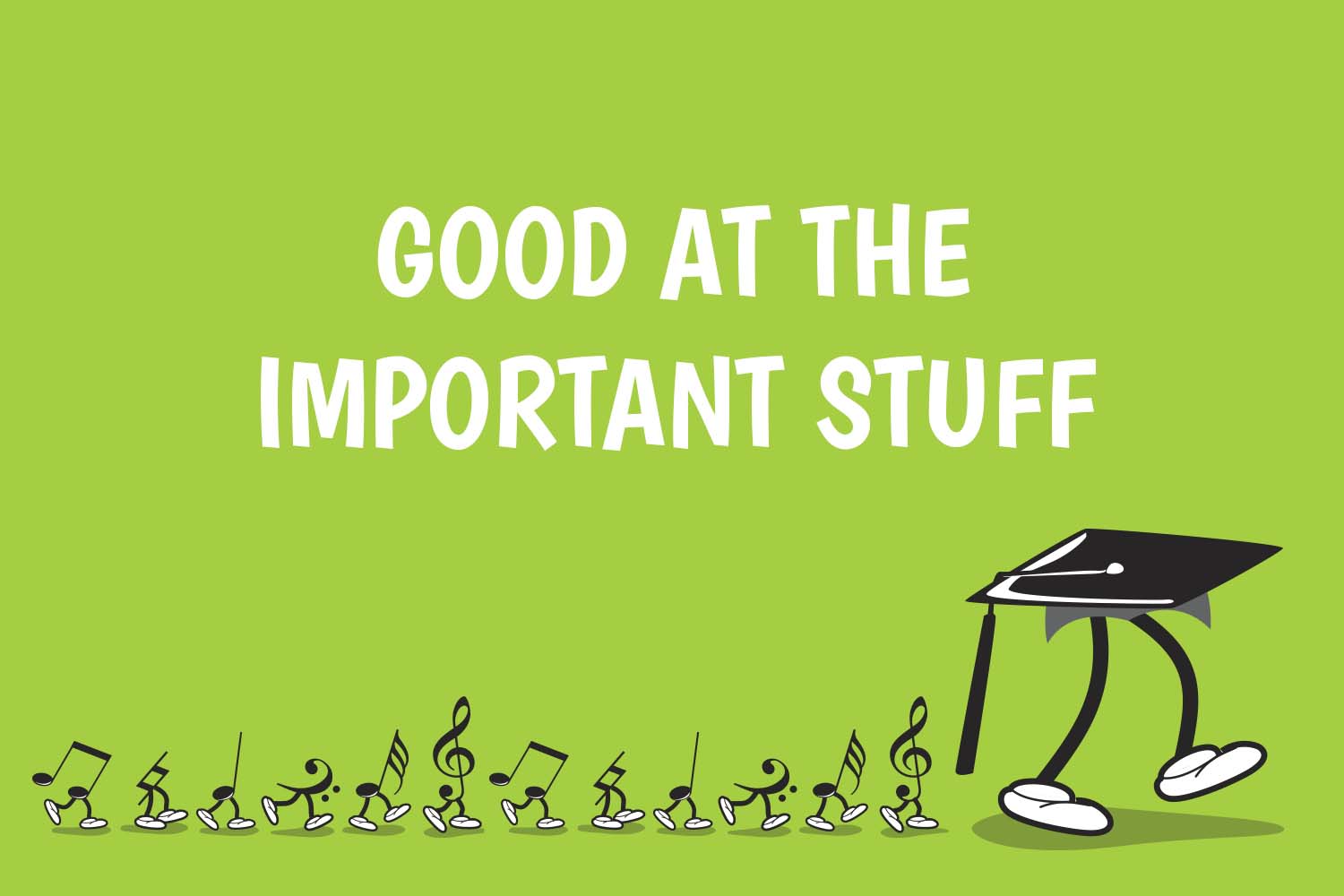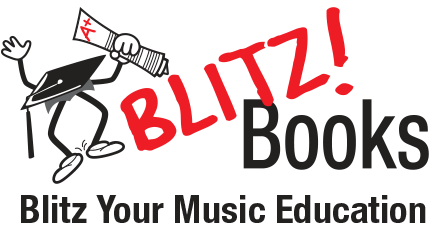Good at the Important Stuff

I have recently inherited a student from a colleague. Luke (not his real name) is a tall, mature and very friendly adolescent, and seemed happy to be coming to the lesson. He had had a break from piano for about six months after his previous teacher moved away, and had decided to come back to it purely because he loved it.
Luke was not your typical transfer student. He had not done any recent piano exams and was not entered for any in the near future (and didn’t have any desire to do any, nor was he being pressured by his mum). Although he had not played scales and arpeggios much recently, he seemed to have a good idea of what they were and how to play them. He could sight-read extremely well – in fact he is going to be my first ever transfer student to start on Book 3 of the Blitz sight reading series rather than Book 1 (which is where most students start, even the really advanced pianists, as they are usually not advanced sight readers).
When I asked Luke to play me something – anything – he seemed sheepishly guilty that he couldn’t play me a ‘piece’, and instead played me a pop song he had worked out on the piano, singing along with it. He could decipher a chord chart and work out accompaniment patterns by ear. I was delighted with this and asked him if he would like to learn more about reading chords. He said, looking a little confused, ‘well, sure, but I thought that was just for fun… I didn’t realise you could do it… do it…’ – I finished the sentence for him: ‘… in a lesson?’ ‘Yes!’ he exclaimed. He looked pretty chuffed that chord chart reading had just been declared a legitimate activity.
When I asked Luke the more general question of what he wanted to do with his piano, he said something really quite mature: that he simply didn’t want to lose his skills. He thought he would need to learn classical pieces in order to ensure this. I took great pleasure in informing him that his current skills are in fact the most important ones to be able to have piano as a life skill: playing by ear and sight reading. Although playing scales and classical repertoire develops technique and is seen by so many as ‘real’ piano playing, adolescents are often snowed under with school work and can’t always spend enough time at the piano to do achieve well in these areas.
In fact, the majority of ‘serious’ piano students who do spend hours at the piano do not sight read well and cannot play by ear – simply because they don’t spend much if any of their time doing these things. Once these pianists stop playing regularly – for whatever reason, be it subject choice, loss of interest, lack of time – their skill is lost. That Chopin etude that was fully mastered 3 months ago is no longer accessible – and the only way to ‘play the piano’ is to bring it back with hours of solid practice, and then keeping up that practice regime in order not to lose the ability to play the piece. But those who can play by ear and sight read will always be able to have some fun with their chosen instruments, even during periods of no regular practice at all.
Luke was well on his way before he even stepped into my studio. His improvisation and sight reading skills will help him learn repertoire quickly, should he wish to do so. He may or may not choose to develop his technique further. But one thing is for certain – in years to come, long after lessons have stopped and the routine of daily working life doesn’t include any practice, Luke will still be able to sit down at the piano and play ‘just for fun’. Isn’t that what music is all about?

Oh how I love this!